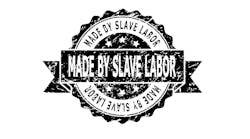A crane operator employed by Norfolk Southern Railway Co. in Fort Wayne, Ind. reported an eye injury requiring the extraction of a sliver of metal from his eye. The railroad fired him for making a false statement. After an OSHA investigation, the railroad faces a total of $437,591.70 in damages for violating the whistleblower provisions of the Federal Railroad Safety Act.
This was one of three recent cases in which OSHA's investigations concluded that the workers would not have been terminated if they had not reported their injuries. The resulting damages in this case include $100,000 in compensatory damages for pain and suffering, $175,000 in punitive damages, and $156,518.94 in back wages and benefits. It also includes compensation of $6,072.76 to the crane operator for penalties incurred when he had to cash in savings bonds prior to their maturity date after being terminated.
In addition to damages, the railroad has been ordered to pay reasonable attorney fees. Further, OSHA has ordered it to reinstate the worker to the proper seniority level, with vacation and sick days that he would otherwise have earned.
Including two other cases, Norfolk Southern Railway Co. has been ordered to pay a total of $1,121,099 following OSHA investigations. Two of the investigations, conducted by OSHA staff in Chicago and Pittsburgh, found that three employees were wrongfully fired for reporting workplace injuries. In addition to monetary remedies, the company has been ordered to expunge the disciplinary records of the three whistleblowers, post a notice regarding employees' whistleblower protection rights under the FRSA and train workers on these rights.
"The Labor Department continues to find serious whistleblower violations at Norfolk Southern, and we will be steadfast in our defense of a worker's right to a safe job—including his or her right to report injuries," said acting Secretary of Labor Seth D. Harris. "When workers can't report safety concerns on the job without fear of retaliation, worker safety and health suffer, which costs working families and businesses alike."
OSHA's second investigation involved a thermite welder and a welder's helper based in western Pennsylvania. Both employees had worked at the railroad for more than 36 years without incident when they reported injuries sustained as a result of an accident caused by another vehicle that ran a red light and hit a second vehicle, which in turn collided with the company truck in which they were riding.
The employees initially reported minor shoulder area pain plus some stiffness and soreness. Later, when questioned by management, they initially declined medical treatment, but as the pain increased, sought and received treatment at a local hospital. They were then taken out of service pending an investigative hearing and formally terminated. Management concluded that the employees' reports about their condition were false and conflicting and constituted misconduct.
OSHA's investigation found that the employees were terminated for reporting injuries to management. The agency has ordered the railroad to pay them $683,508 in damages, including $300,000 in punitive damages; $233,508 in lost wages, benefits and out-of-pocket costs; and $150,000 in compensatory damages for pain and suffering. Interest on back pay due will accrue daily until the employees are paid. In addition to damages, the company has been ordered to pay reasonable attorney fees.
These actions follow several other orders issued by OSHA against Norfolk Southern Railway Co. in the past two years. OSHA's investigations have found that the company continues to retaliate against employees for reporting work-related injuries, and these actions have effectively created a chilling effect in the railroad industry.
"The Labor Department's responsibility is to protect all employees, including those in the railroad industry, from retaliation for exercising these basic worker rights," said Dr. David Michaels, assistant secretary of labor for occupational safety and health. Railroad workers must be able to report work-related injuries without fear of retaliation."
Employees who believe that they have been retaliated against for engaging in protected conduct may file a complaint with the secretary of labor to request an investigation by OSHA's Whistleblower Protection Program.


